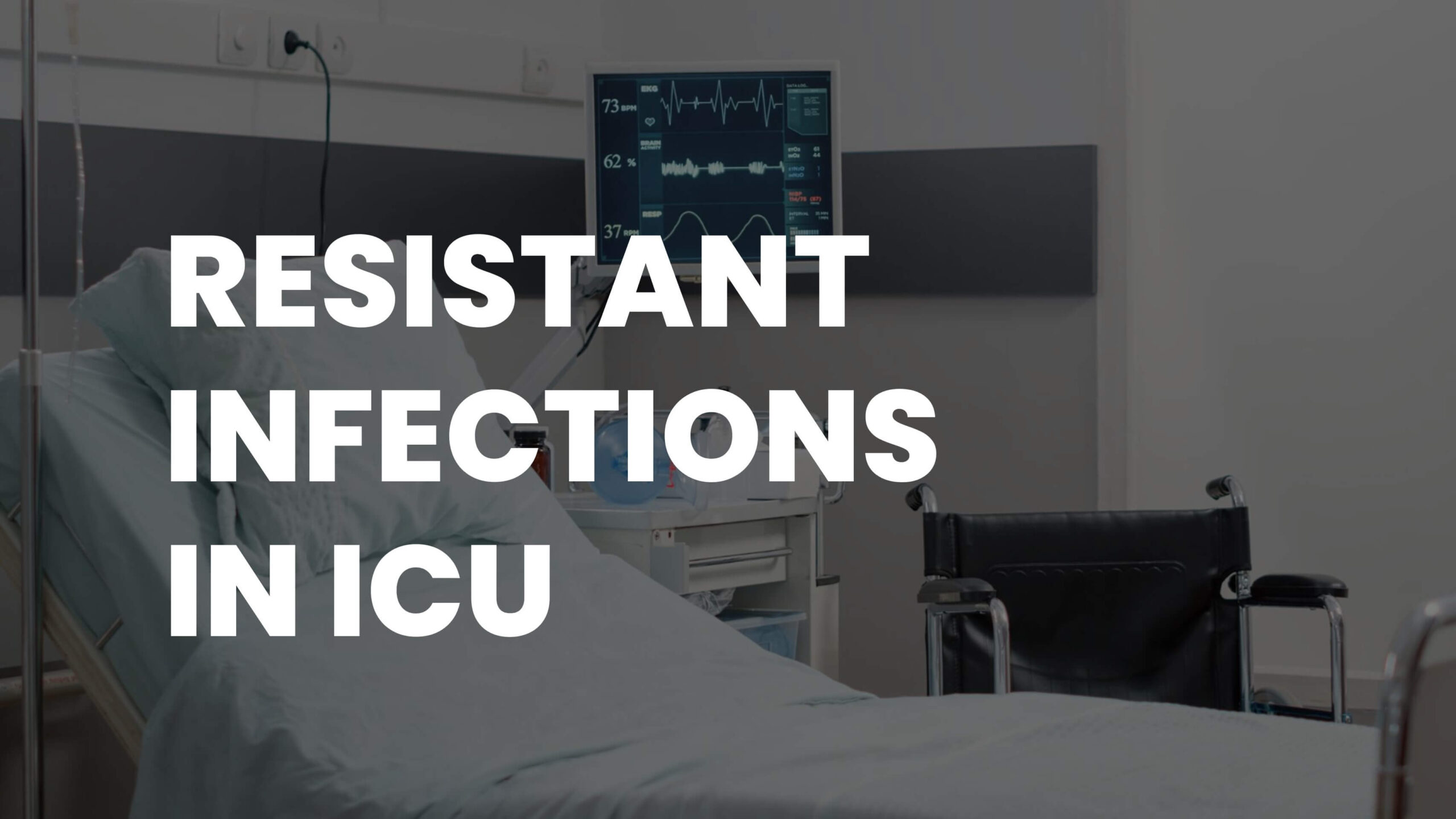
Overview - What is it?
The Intensive Care Unit (ICU) is a critical environment and with longer stay in ICU (more than 7-10 days) ICU patients who often have weakened immune systems and are having invasive tubes and catheters, the risk of hospital-acquired infections (HAIs) is significantly heightened.
These infections can be complex and resistant to most of regular antibiotics, posing significant risks to patient health and recovery.
When do these infections occur?
Individuals are at higher risk of developing complicated and resistant infections when they:
Have frequent hospital visits or antibiotic use in last 3 months
Undergo regular hemodialysis or on prolong ventilator support (any external tube or device inside body)
Receive chemotherapy treatment (for any cancer)
Have low white blood cell (WBC) counts (neutropenia)
Have received multiple antibiotics
Experience malnutrition
Infection control in ICU (What can we as ICU team do?)
Preventing and managing these infections requires a multi-faceted approach:
Strict infection prevention measures: best attempt to prevent or spread of infection by implementing hand hygiene, Isolation-contact precaution and sterilization protocol.
Proper interpretation of microbiology data, culture reports.
Selecting right antimicrobials at right time and right doses.
Open communication: Right information – prognostication to relatives.
Collaboration: Decision making with experts in critical care and infectious disease.
Early removal of infected devices.
How can patient’s relatives contribute to the infection control?
While healthcare professionals play a crucial role in preventing infections, individuals can also contribute:
Understand the risks: It carries significant cost burden and threat to life. Be aware of the potential for infections in ICU settings. Understand that it is not 100% preventable.
Practice good hygiene: Wash hands frequently and follow hospital guidelines.
Communicate with healthcare providers: Ask questions about infection prevention and treatment.
Educate, guide your family members: to understand and follow infection prevention measures.
Conclusion (Looking for the ICU infection control doctor in Ahmedabad?)
Infection control in the ICU is a critical component of patient care through rigorous adherence to best practices, prevention strategies and a commitment to patient safety, healthcare providers can protect their patients from the potentially devastating effects of hospital-acquired infections.
Banner Source: www.freepik.com
Disclaimer: This information is intended for general knowledge and informational purposes only, and does not constitute medical advice. Always consult with a qualified healthcare professional for diagnosis and treatment.
Disclaimer: This information is intended for general knowledge and informational purposes only, and does not constitute medical advice. Always consult with a qualified healthcare professional for diagnosis and treatment.


